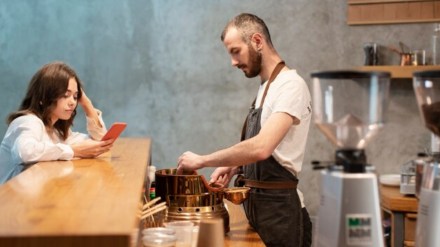Coffee chain startups are seeing renewed interest from investors this year. While speciality coffee chain Blue Tokai Coffee raised $35 million in a Series C funding round led by Verlinvest last month, Subko Coffee Roasters raised $10 million in a Series B funding round led by Zerodha co-founder Nikhil Kamath and abCoffee picked up $3.4 million in a round led by Nexus Venture Partners, both in March this year.
Further, many startups that raised funding last year are on an expansion spree now. For instance, WestBridge Capital-backed Third Wave Coffee is in the middle of opening around 50 new stores and expanding to new cities like Chennai.
One of the key reasons behind this investor interest is the addition of newer revenue streams by many players in the segment. Post the pandemic slump, there is a heightened focus on adding newer layers to prepare for any uncertainty. Two such add-on verticals are direct-to-consumer (D2C) where these new-age coffee chains sell products such as roasted coffee powder, ready-to-drink, merchandise, coffee machines, cookies, kettles and others through company websites and online channels and B2B (business-to-business) where they partner with HORECA, ie, retail outlets, luxury hotels, restaurants, corporates and coworking spaces to offer vending machine, coffee beans, tea bags, among others on a subscription basis.
“By adding D2C and B2B layers to their core revenue model, coffee chains diversify their revenue streams, reducing dependence on in-store sales. This approach enhances profitability and resilience against market fluctuations,” Vaibhav Nigam, senior vice president, Blacksoil told Fe.
The potential revenue share from these streams varies based on market penetration, brand strength and execution. But, often they account for a significant portion of the total revenue. Experts say that D2C and B2B could collectively contribute 30-50% of overall revenues in well-diversified models. D2C sales represent 10-20%, while B2B partnerships contribute 20-30%.
While these additional revenue streams might initially contribute in the low single digits, they have the potential to scale significantly, eventually comprising 25% to 35% of total revenue. The key to unlocking this potential lies in strategically selecting B2B locations and executing precise marketing and brand positioning for D2C products,” Ninad Karpe, founder and partner, 100X.VC said. With the right approach, these channels can evolve from supplementary to substantial contributors, driving both top-line growth and brand equity, he added.
According to Tracxn, new-age coffee chains have raised a total funding of $633.16 million so far. In 2024, the companies have raised $48.4 million so far as against $39 million in 2023. Some of the startups in the space are Blue Tokai Coffee, Subko Coffee, Third Wave Coffee Roasters, abCoffee, Hatti Kaapi, SLAY Coffee, Theka coffee, Coffee & More and Coffee Bond.
The sector is also witnessing increased consumption, which has led to growth in terms of revenue. For instance, the operating revenue of actor Deepika Padukone-backed Blue Tokai, jumped more than 70% to Rs 127 crore in FY23. Third Wave’s revenue from operations increased to Rs 144 crore in FY23 from Rs 32 crore in FY22. Subko Coffee’s sales almost doubled to Rs 13.5 crore in FY23 from Rs 7 crore in the previous fiscal year. Theka Coffee reportedly has more than 800 outlets across over 45 cities and the startup’s valuation increased to Rs 120 crore from Rs 5 crore valuation around three years ago.
Investor interest in Indian coffee chains has also been rising due to the growing coffee culture, particularly among the urban and younger demographics, increased disposable income and the shift toward cafés as workspaces. Additionally, strong global interest in India as an emerging market further fuels funding in this sector.
